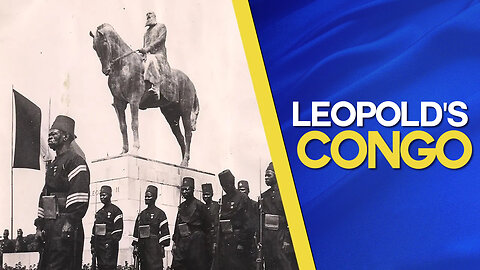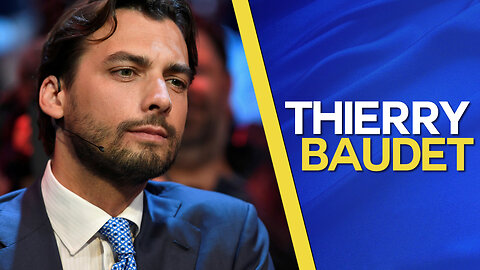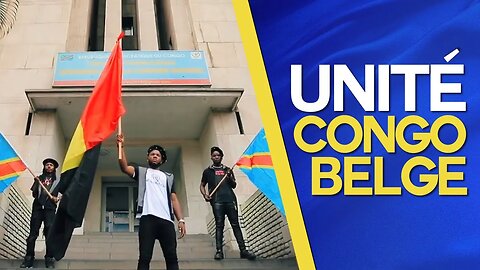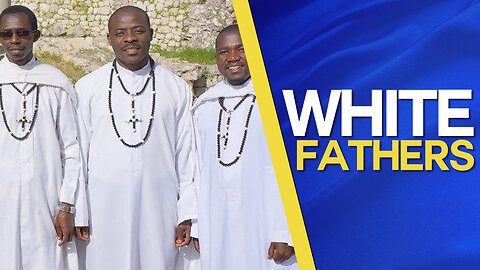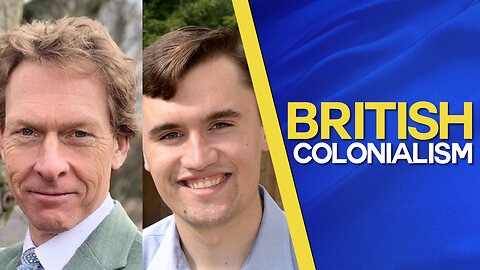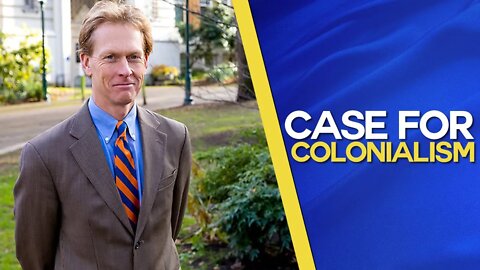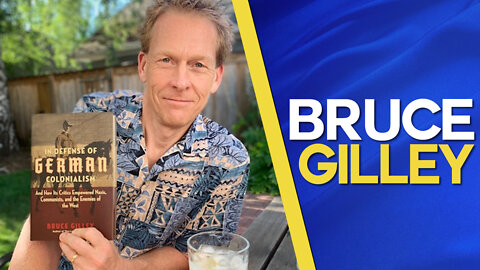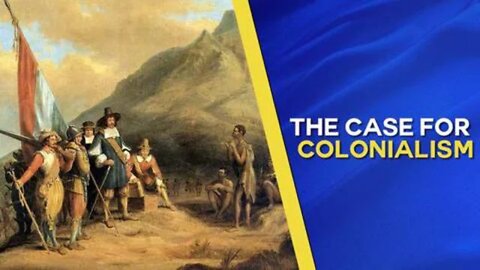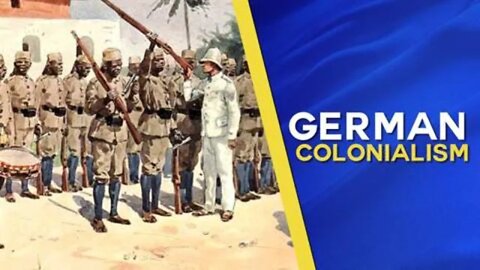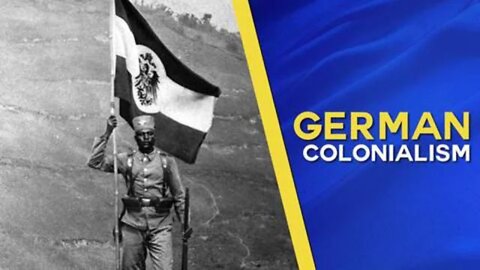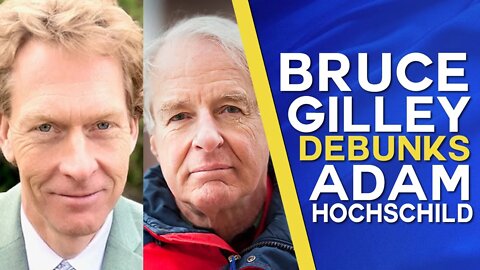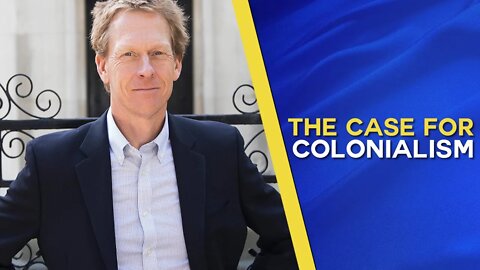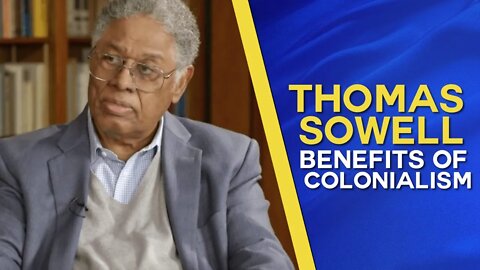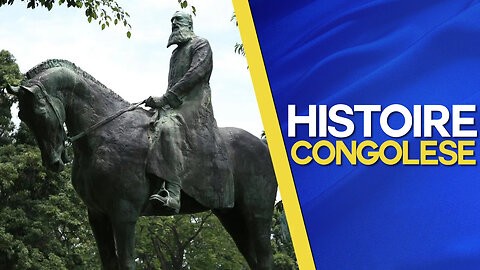Premium Only Content
This video is only available to Rumble Premium subscribers. Subscribe to
enjoy exclusive content and ad-free viewing.
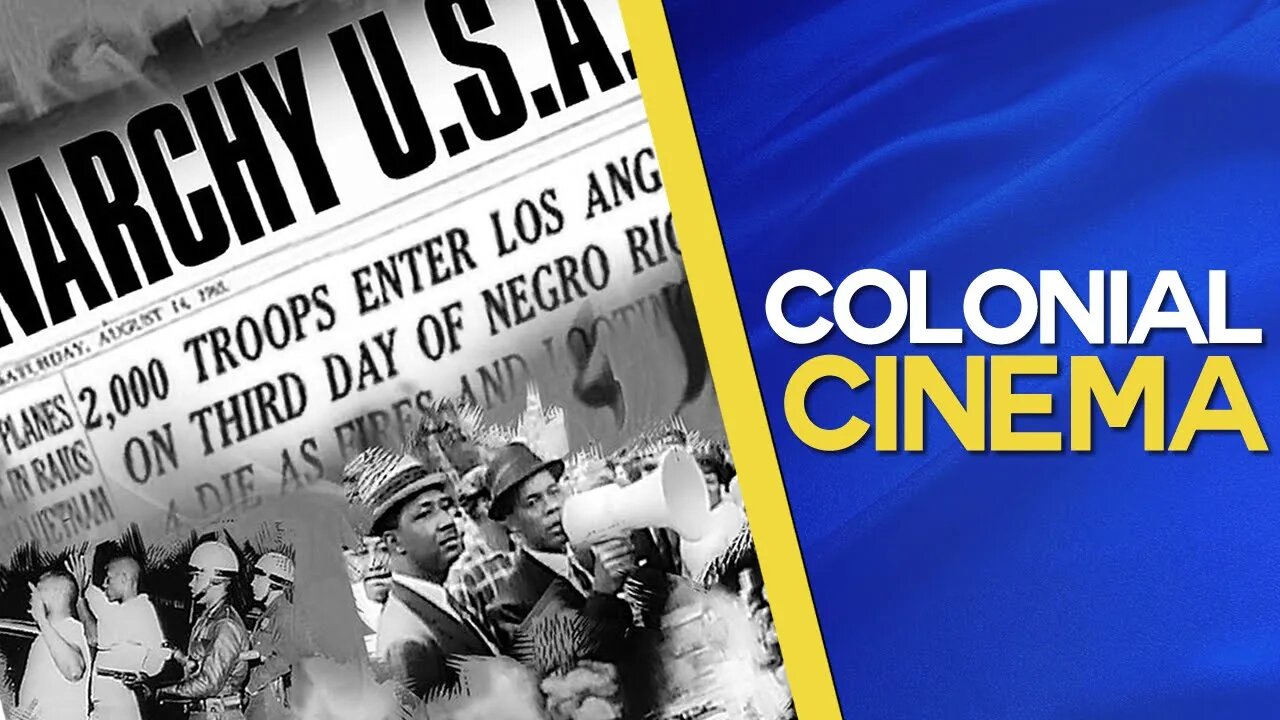
Deprogramming
BelgianCongo
- 10 / 30
1
In Defense of King Léopold’s Congo
Belgian Congo
Watch Full Episode: https://www.youtube.com/watch?v=XVYA_sjHztQ
For the past 25 years, the idea of the Congo has been closely linked in the Western imagination to the 1998 book King Leopold’s Ghost by the American journalist Adam Hochschild. The book is widely assigned in high schools and colleges, and it regularly tops best-seller lists in colonial, African, and Western history. Hochschild has become a sort of king of the Congo, or at least of its history. The book is reflexively cited by reputable scholars in their footnotes any time they wish to assert that it is “well known” and “beyond doubt” that sinister men in Europe wrought havoc in Africa over a century ago. Any discussion of the Congo, or of European colonialism more generally, invariably begins with the question: “Have you read King Leopold’s Ghost?”
Follow Dr. Peter Boghossian on Twitter: https://twitter.com/peterboghossian
Follow Dr. Bruce Gilley on Twitter: https://twitter.com/BruceDGilley
Follow Belgian Congo on Twitter: https://twitter.com/BasedCongo
#CongoFreeState #PeterBoghossian #BruceGilley
2
Doctor en Politicus Thierry Baudet brengt op poëtische wijze hulde aan het kolonialisme
Belgian Congo
Doctor en Politicus Thierry Baudet brengt op poëtische wijze hulde aan het kolonialisme. De Nederlanders hebben een groots en imposant rijk gesticht, zowel in het Oosten als in het Westen. Waar ze ook heengingen, brachten de Nederlanders handel, cultuur en beschaving met zich mee. Dit erfgoed getuigt van een indrukwekkende grandeur waar Nederland trots op kan zijn.
Volg Dr. Baudet op Twitter: https://twitter.com/thierrybaudet
Volg op Twitter: https://twitter.com/BasedCongo
#ThierryBaudet #kolonialisme #NederlandseKoloniën
3
King Leopold's Ghost: An absurdly deceptive book is better described as historical fiction
Belgian Congo
Read Dr. Gilley's Article: https://www.theamericanconservative.com/king-hochschilds-hoax/
Read Hochschild's Response: https://www.theamericanconservative.com/the-ghost-still-haunts/
For the past 25 years, the idea of the Congo has been closely linked in the Western imagination to the 1998 book King Leopold’s Ghost by the American journalist Adam Hochschild. The book is widely assigned in high schools and colleges, and it regularly tops best-seller lists in colonial, African, and Western history. Hochschild has become a sort of king of the Congo, or at least of its history. The book is reflexively cited by reputable scholars in their footnotes any time they wish to assert that it is “well known” and “beyond doubt” that sinister men in Europe wrought havoc in Africa over a century ago. Any discussion of the Congo, or of European colonialism more generally, invariably begins with the question: “Have you read King Leopold’s Ghost?”
I have read it. And I can declare that it is a vast hoax, full of distortions and errors both numerous and grave, a few of which I will detail in this short essay. Some people might view “King Hochschild’s Hoax,” as we might call it, as an empowering fable for modern Africans at the expense of the white man. But its debilitating effects on Africa, and on the Congo in particular, make the opposite more nearly the case. It is a callous and negligent chicotte (hippo whip) lash on the backs of all black Africans, narcissistic guilt porn for white liberals at the expense of the African. The Congolese lawyer Marcel Yabili calls it “the greatest falsification in modern history,” a compliment of sorts, I suppose.
Hochschild’s book is a history of the private domain of the Belgian King Léopold II in the Congo river basin that was founded in 1885 and then handed over to the Belgian government in 1908. The book alternates between diabolical accounts of Léopold and hagiographic accounts of three of his critics: the British campaigner E.D. Morel, the British diplomat Roger Casement, and the black American missionary William Henry Sheppard. The narrative style is dark and conspiratorial, from the initial plans for the domain to its final dissolution. All along, Hochschild’s aim is to elevate the story into one of the greatest evils ever perpetrated by the West upon the Rest.
There have been two documentary films about Hochschild’s fable, both travesties of art as well as fact. But the worst is yet to come. A dramatized Hollywood version by the American directors Ben Affleck and Martin Scorsese, co-produced with the singer and activist Harry Belafonte, has been in development since 2019. The history of the Congo might have survived one gut punch from California (Hochschild did his research entirely at libraries in the state and teaches at Berkeley). But once Hollywood weighs in on the matter, history as such will be impossible. Before that happens, let’s set the record straight and end this most malicious form of imperial plunder.
Follow Bruce Gilley on Twitter: https://twitter.com/BruceDGilley
Follow on Twitter: https://twitter.com/BasedCongo
#BruceGilley #LeopoldsGhost #AdamHochschild #CongoFreeState #LeopoldsGhost #KingHochschildsHoax #KingLeopoldII #JudeRusso #TheAmericanConservative
4
Esther Anumu Fordham - Growing up Black in Nazi Germany
Belgian Congo
Esther Fordham was a Togolese woman who, born October 9, 1925 in Hamburg, Germany, came of age during the Nazi era. In this December, 1995 conversation with artist Frank Fitzgerald, Esther discusses her youth, schooling and the reaction of classmates and adult Germans to her specialness. As world conditions darken and war grows to become the norm, she finds discrimination, fear, sorrow and horror, but also generosity and hope. After the bombings cease, amid the rubble Esther meets and marries an American soldier. Giving birth in an Army hospital, she wonders why she has a whole maternity ward to herself. Later, living in America, she slowly learns about prejudice, segregation and lynchings. Throughout all, Esther Anumu Fordham strives to see "people as human beings" and succeeds. In 1997, after having raised a family and worked 20+ years for an airline, Esther retired and returned to Germany. At age 94 years, Esther passed away in 2019.
Follow on Twitter:
https://twitter.com/BasedCongo
#nazigermany #togolese #worldwarii
5
Unité Congo-Belgique
Belgian Congo
"La chanson 'Congo-Belgique' est un appel à la conscience pour le peuple congolais de faire face à sa misère qui semble perdurer éternellement. C'est notre devoir d'éclaircir l'ambiguïté, de ne pas laisser nos générations futures languir sous la misère dont nous, les parents, sommes responsables."
Merci à: @phillipemakasibondoofficie6695
Suivre sur Twitter: https://twitter.com/BasedCongo
#CongoBelge #PhilippeMakasi #LaHauteMelodie #DjefMawete
6
The Missionaries Who liberated Africa from Slavery
Belgian Congo
In the 19th Century, England's great industrial cities had a crying need for missionaries because millions never set foot in church. Subscribe to Our History: But the "heathens" of the English slums came second to the exotic mission field of Africa. The missionaries went in the name of the Christian God but they were also explorers who laid the foundation for the great European empires. Behind them came the traders and administrators. Includes a look at present day missionary work in Tanzania.
Follow on Twitter: https://twitter.com/BasedCongo
7
Was European Colonialism Racist?
Belgian Congo
The subjective legitimacy approach asks whether the people subject to colonialism treated it, through their beliefs and actions, as rightful. As Hechter showed, alien rule has often been legitimate in world history because it has provided better governance than the indigenous alternative.
Yet anti-colonial critics simply assert that colonialism was, in Hopkins’s words, “a foreign imposition lacking popular legitimacy.” Until very late, European colonialism appears to have been highly legitimate and for good reasons.
Millions of people moved closer to areas of more intensive colonial rule, sent their children to colonial schools and hospitals, went beyond the call of duty in positions in colonial governments, reported crimes to colonial police, migrated from non-colonized to colonized areas, fought for colonial armies, and participated in colonial political processes—all relatively voluntary acts.
Indeed, the rapid spread and persistence of Western colonialism with very little force relative to the populations and geographies concerned is prima facie evidence of its acceptance by subject populations compared to the feasible alternatives. The “preservers,” “facilitators,” and “collaborators” of colonialism, as Abernethy shows, far outnumbered the “resisters,” at least until very late: “Imperial expansion was frequently the result not just of European push but also of indigenous pull."
In Borneo, the Sultan of Brunei installed an English traveler James Brooke, as the rajah of his chaotic province of Sarawak in 1841. Order and prosperity expanded to such an extent that even once a British protectorate was established in 1888, the Sultan preferred to leave it under Brooke family control until 1946.
Sir Alan Burns, the governor of the Gold Coast during World War II, noted that “had the people of the Gold Coast wished to push us into the sea there was little to prevent them. But this was the time when the people came forward in their thousands, not with empty protestations of loyalty but with men to serve in the army... and with liberal gifts to war funds and war charities.
This was curious conduct for people tired of British rule.” In most colonial areas, subject peoples either faced grave security threats from rival groups or they saw the benefits of being governed by a modernized and liberal state. Patrice Lumumba, who became an anti-colonial agitator only very late, praised Belgian colonial rule in his autobiography of 1962 for “restoring our human dignity and turning us into free, happy, vigorous, and civilized men.” Chinua Achebe’s many pro-colonial statements, meanwhile, have been virtually airbrushed from memory by anti-colonial ideology. The few scholars who take note of such evidence typically dismiss it as a form of false consciousness.
The failure of anti-colonial critique to come to terms with the objective benefits and subjective legitimacy of colonialism points to a third and deeper failure: it was never intended to be “true” in the sense of being a scientific claim justified through shared standards of inquiry that was liable to falsification. The origins of anti-colonial thought were political and ideological. The purpose was not historical accuracy but contemporaneous advocacy. Today, activists associate “decolonization” (or “postcolonialism”) with all manner of radical social transformation, which unintentionally ties historic conclusions to present-day endeavors.
Unmoored from historical fact, postcolonialism became what Williams called a metropolitan flaneur culture of attitude and performance whose recent achievements include an inquiry into the glories of sadomasochism among Third World women and a burgeoning literature on the horrors of colonialism under countries that never had colonies.
Follow on Twitter: https://twitter.com/BasedCongo
Follow Professor Gilley on Twitter: https://twitter.com/BruceDGilley
Follow TRIGGERnometry on Twitter: https://twitter.com/triggerpod
#BruceGilley #Racism #colonialism
8
In Defence of British Colonialism
Belgian Congo
Until very late, European colonialism appears to have been highly legitimate and for good reasons. Millions of people moved closer to areas of more intensive colonial rule, sent their children to colonial schools and hospitals, went beyond the call of duty in positions in colonial governments, reported crimes to colonial police, migrated from non-colonized to colonized areas, fought for colonial armies, and participated in colonial political processes—all relatively voluntary acts. Indeed, the rapid spread and persistence of Western colonialism with very little force relative to the populations and geographies concerned is prima facie evidence of its acceptance by subject populations compared to the feasible alternatives. The “preservers,” “facilitators,” and “collaborators” of colonialism, as Abernethy shows, far outnumbered the “resisters,” at least until very late: “Imperial expansion was frequently the result not just of European push but also of indigenous pull.” In Borneo, the Sultan of Brunei installed an English traveler James Brooke, as the rajah of his chaotic province of Sarawak in 1841. Order and prosperity expanded to such an extent that even once a British protectorate was established in 1888, the Sultan preferred to leave it under Brooke family control until 1946.
Sir Alan Burns, the governor of the Gold Coast during World War II, noted that “had the people of the Gold Coast wished to push us into the sea there was little to prevent them. But this was the time when the people came forward in their thousands, not with empty protestations of loyalty but with men to serve in the army . . . and with liberal gifts to war funds and war charities. This was curious conduct for people tired of British rule.” In most colonial areas, subject peoples either faced grave security threats from rival groups or they saw the benefits of being governed by a modernized and liberal state. Patrice Lumumba, who became an anti-colonial agitator only very late, praised Belgian colonial rule in his autobiography of 1962 for “restoring our human dignity and turning us into free, happy, vigorous, and civilized men.” Chinua Achebe’s many pro-colonial statements, meanwhile, have been virtually airbrushed from memory by anti-colonial ideology. The few scholars who take note of such evidence typically dismiss it as a form of false consciousness.
The failure of anti-colonial critique to come to terms with the objective benefits and subjective legitimacy of colonialism points to a third and deeper failure: it was never intended to be “true” in the sense of being a scientific claim justified through shared standards of inquiry that was liable to falsification. The origins of anti-colonial thought were political and ideological. The purpose was not historical accuracy but contemporaneous advocacy. Today, activists associate “decolonization” (or “postcolonialism”) with all manner of radical social transformation, which unintentionally ties historic conclusions to present-day endeavors. Unmoored from historical fact, postcolonialism became what Williams called a metropolitan flaneur culture of attitude and performance whose recent achievements include an inquiry into the glories of sadomasochism among Third World women and a burgeoning literature on the horrors of colonialism under countries that never had colonies.
This third failure of anti-colonial critique is perhaps most damaging. It is not just an obstacle to historical truth, which itself is a grave disservice. Even as a means of contemporary advocacy, it is self-wounding. For it essentially weaponizes the colonial past, as the gradually imploding postcolonial South African state’s persecution of Helen Zille shows. “What a meta-narrative of anti-colonial sentiment can render invisible are ways in which people made claims on new possibilities without deploying either anti- or pro-colonial idioms,” Englund writes in his study of colonial-era newspapers in Zambia. “To devote all scholarly attention to the question of how different actors during this period sought to end colonial rule is to succumb to a limiting meta-narrative of anti-colonialism, one that allows no conceptual space between colonial and anti-colonial agendas, and thereby keeps other possibilities inaccessible to the scholarly and moral imagination.”
Follow on Twitter: https://twitter.com/BasedCongo
Follow Professor Gilley on Twitter: https://twitter.com/BruceDGilley
Follow Charlie Kirk on Twitter: https://twitter.com/charliekirk11
#BruceGilley #CharlieKirk #BritishEmpire
3
comments
9
The Case for Belgian Colonialism, with Dr. Bruce Gilley and Douglas Murray (Uncancelled History)
Belgian Congo
Bruce Gilley joins Douglas Murray on this episode to discuss one of the biggest criticisms of the west – Colonialism. From antiquity to modernity, the two give an in-depth examination of the practice. Should Colonialism stay cancelled?
Watch full Episode here: https://www.youtube.com/watch?v=z0HJV5BE294
Anarchy USA - Film on the Marxist roots of the civil rights and global decolonial movement (1966)
Belgian Congo
Produced in 1966 by the John Birch Society, this educational film uses stories and news footage to document the methods of communist revolutionaries in Asia, Africa and America. It then exposes the civil rights movement and denounces the urban unrest of the 1960s.
Follow on Twitter: https://twitter.com/BasedCongo
#documentary #civilrightsmovement #decolonization
11
Professor Bruce Gilley joins Neil Oliver on GB News to debate the "Case for Colonialism".
Belgian Congo
For the last hundred years, Western colonialism has had a bad name. Colonialism has virtually disappeared from international affairs, and there is no easier way to discredit a political idea or opponent than to raise the cry of “colonialism.” When South African opposition politician Helen Zille tweeted in 2017 that Singapore’s success was in part attributable to its ability to “build on valuable aspects of colonial heritage,” she was vilified by the press, disciplined by her party, and put under investigation by the country’s human rights commission.
It is high time to reevaluate this pejorative meaning. The notion that colonialism is always and everywhere a bad thing needs to be rethought in light of the grave human toll of a century of anti-colonial regimes and policies. The case for Western colonialism is about rethinking the past as well as improving the future. It involves reaffirming the primacy of human lives, universal values, and shared responsibilities—the civilizing mission without scare quotes --that led to improvements in living conditions for most Third World peoples during most episodes of Western colonialism. It also involves learning how to unlock those benefits again. Western and non-Western countries should reclaim the colonial toolkit and language as part of their commitment to effective governance and international order.
There are three ways to reclaim colonialism. One is for governments and peoples in developing countries to replicate as far as possible the colonial governance of their pasts—as successful countries like Singapore, Belize, and Botswana did. The “good governance” agenda, which contains too many assumptions about the self-governing capacity of poor countries, should be replaced with the “colonial governance” agenda. A second way is to recolonize some regions. Western countries should be encouraged to hold power in specific governance areas (public finances, say, or criminal justice) in order to jump-start enduring reforms in weak states. Rather than speak in euphemisms about “shared sovereignty” or “neo-trusteeship,” such actions should be called “colonialism” because it would embrace rather than evade the historical record. Thirdly, in some instances, it may be possible to build new Western colonies from scratch.
Colonialism can return (either as a governance style or as an extension of Western authority) only with the consent of the colonized. Yet now that the nationalist generation that forced sudden decolonization on hapless populations has passed away, the time may be ripe. Sèbe has documented how the founding figures of Western colonialism in Africa (such as Livingstone in Zambia, Lugard in Nigeria, and de Brazza in Congo) are enjoying a resurgence of official and social respect in those countries now that romanticized pre-colonial and disappointing post-colonial approaches to governance have lost their sheen. As one young man on the streets of Kinshasa asked Van Reybrouck in his seminal 2010 book on the Congo: “How long is this independence of ours going to last anyway? When are the Belgians coming back?”
Follow on Twitter: https://twitter.com/BasedCongo
#BruceGilley #NeilOliver #Colonialism #GBNews
12
In Defense of German Colonialism: And How Its Critics Empowered the Enemies of the West
Belgian Congo
Famed historian and author of the groundbreaking "The Case for Colonialism" demonstrates that, contary to modern presuppositions, German colonialism from its early roots to the mid-twentieth century was overall a force for good in the world where development was encouraged and native governance flourished.
Historian and university professor, Bruce Gilley, delves into the history of German colonialism from its earliest roots through the 20th century, demonstrating that contrary to modern presuppositions, it served as a global force for good—elevating the lives of its subjects and encouraging scientific development while allowing native cultures to flourish within its governance.
Buy Book: https://www.amazon.com/Defense-German-Colonialism-Empowered-Communists-ebook/dp/B09MDKS7ZD
13
De gewelddadige geschiedenis van dekoloniaal Links
Belgian Congo
Van het bewapenen van terroristische organisaties tot het steun en van Genocidaire regimes. Joost Niemöller en Peter Siebelt leggen het extreem gewelddadige verleden van dekoloniaal links bloot.
Met dank aan: https://cafeweltschmerz.nl/
Volg op Twitter: https://twitter.com/BasedCongo
14
Bruce Gilley: The evolution of Colonialism
Belgian Congo
Sir Alan Burns was the most prominent defender of the British empire in its final stages. The Last Imperialist: Sir Alan Burns' Epic Defense of the British Empires studies Burns' career and his arguments in defense of European colonialism. Bruce Gilley describes Burns' intellectual and policy battles with opponents of colonialism and his efforts to slow the decolonization process. The Last Imperialist takes readers through Burns' critical roles in World War I, the economic development of British Honduras (contemporary Belize), the forging of the Anglo-American alliance in World War II, and the political development of the Gold Coast (contemporary Ghana). The Last Imperialist closes with an examination of Burns' final contributions to colonial affairs in the 1960s and 1970s, a time when his worst predictions had been vindicated. A revisionist history of European colonialism, The Last Imperialist analyzes anti-colonial arguments in the context of the colonial encounter as seen through the life and works of Sir Alan Burns.
Buy book: https://www.amazon.com/gp/product/1684512174
Follow Bruce Gilley: https://twitter.com/brucedgilley
Follow Belgian Congo on Twitter: https://twitter.com/BasedCongo
15
Post-colonial Africa is similar to post-Roman Europe
Belgian Congo
As an extension of the revealing series 'Congo Hold-up', Marc Reynebeau ('In Congo it is still like the old days', De Standaard, 1 December) sees similarities between the Belgian colonial administration until 1960 and the corrupt Congolese administration since then. In doing so, he cuts quite a few curves very narrowly, according to author and journalist Peter Verlinden. In his new book, Congolese testify about the colonial period they experienced themselves and they also make a comparison between then and now.
There is no doubt that “colonialism” was a form of “occupation”. Not even the many dozen Congolese with whom I was allowed to have long conversations about 'then and now' over the past fifteen years. They had consciously experienced the colonial era as adolescents or adults themselves. No matter how great the nostalgia for 'le temps des Belges' when the roads were maintained, wages paid on time, schools and hospitals were free, safety was guaranteed everywhere ... nobody wants to go back to those colonial times. But to the good sides of it, not to the humiliations, to the time when Congolese were second-class citizens in their own country, structurally oppressed and dependent on the good or bad character of their Belgian bosses.
Equally unanimous is the bitter criticism of its own leaders since independence: 'If I can choose to work for a Congolese boss or for a Belgian one, I'd rather work for a Belgian one'. The anger about the dilapidated public facilities, the collapsed social security and the unaffordable schools for many is echoed everywhere, more than sixty years after independence.
Security vs mafia
It is true that colonial companies in particular were able to enrich themselves in Belgian Congo thanks to cheap labor and raw materials, in accordance with the legislation and international regulations at the time. Yet my Congolese witnesses prefer to refer to the fact that at the time they were at least paid correctly, including all social benefits, but indeed without any say in the governance of their own country.
In the same breath, most add that they do not have that participation today and, moreover, are no longer paid correctly and have lost all social security. The certainty of colonial paternalism has been replaced by the uncertainty of a mafia system: only a small elite gain access to the state's pots. The journalistic investigation 'Congo Hold-up' has made this clear once again, although this has not been news for the Congolese in Congo for a long time. They did not need the Western investigative journalists for that.
Did the Congolese leaders then take inspiration from the colonial government system to develop their corrupt government, from Mobutu over father and son Kabila to now also Tshisekedi? And are 'the Belgians' partly responsible for today's misery in Congo? At least the Congolese on the ground do not see it that way. Today's political elite is responsible for its actions and must answer to its own people, which it does not do. This does not alter the fact that most witnesses are deeply disappointed with the Belgian policy towards these Congolese leaders since independence, even more than with the Belgian colonial administration that is far behind and cannot be redone. They expect Belgium to help end mismanagement, corruption and human and economic tragedies and not keep rolling out the red carpet for one unelected president after another. Today, Belgium is all too often on the side of the corrupt leaders and not of the Congolese people. That makes many Congolese in Congo angry. Much more than the memory of the colonial past, even if they have experienced that time themselves.
'Decolonize'
If we really want to understand why Congo is what it is today, including corruption, then it is urgent to stop focusing so stubbornly on (almost) exclusively the colonial past. The Congo Special Parliamentary Commission is also threatening to do so, incited by the loudest voices of the young Congolese diaspora, a number of academics and opinion makers. On the contrary, we need to look much broader and at the same time more deeply. It is urgent to 'decolonize' our view of the former colonial areas.
Because these countries also have their own cultures and deep-rooted traditions that have not always been affected by only half to three quarters of a century of colonization. In the meantime, they have been independent again for longer than they have ever been colonized. The colonial past is just one more element of their individuality.
16
Professor Bruce Gilley: In Defense of German Colonialism
Belgian Congo
Famed historian and author of the groundbreaking "The Case for Colonialism" demonstrates that, contary to modern presuppositions, German colonialism from its early roots to the mid-twentieth century was overall a force for good in the world where development was encouraged and native governance flourished.
Historian and university professor, Bruce Gilley, delves into the history of German colonialism from its earliest roots through the 20th century, demonstrating that contrary to modern presuppositions, it served as a global force for good—elevating the lives of its subjects and encouraging scientific development while allowing native cultures to flourish within its governance.
#BruceGilley #GermanColonialism #Germany
Follow Bruce Gilley on Twitter: https://twitter.com/BruceDGilley
Follow Belgian Congo on Twitter: https://twitter.com/BasedCongo
Buy Book: https://www.simonandschuster.ca/books/In-Defense-of-German-Colonialism/Bruce-Gilley/9781684512379
Video by: Markus Frohnmaier (AfD) https://www.youtube.com/watch?v=ZXgspdCvmDw
17
The Case for Colonialism
Belgian Congo
The case for Western colonialism is about rethinking the past as well as improving the future. Western and non-Western countries should reclaim the colonial toolkit and language as part of their commitment to effective governance and international order.
Follow Bruce Gilley: https://twitter.com/BruceDGilley
#colonialism #colonization #brucegilley
18
Germany's Mistaken Apology for Colonial Genocide
Belgian Congo
A quick 12-minute video on Germany's mistaken apology for alleged colonial genocide. It's time to stand up to this sort of extortion racket, which is being replicated across modern societies.
Follow Bruce Gilley: ttps://twitter.com/BruceDGilley
#Colonialism #Germany #GermanColonialism
19
Professor Bruce Gilley: In Defense of German Colonialism
Belgian Congo
Introduction to Professor of Political Science and Public Policy Bruce Gilley's new book (in German) In Defense of German Colonialism. The English version will appear next year.
Follow Bruce Gilley: ttps://twitter.com/BruceDGilley
#germancolonialism #germanafrica #brucegilley
20
Peter Verlinden: Het is absolute nonsense om Leopold II een Genocidair te noemen!
Belgian Congo
Neen, de koloniale monumenten mogen niet verdwijnen uit het Belgische straatbeeld, wel integendeel. Neen, de Belgische politici moeten zich niét verontschuldigen voor het kolonialisme en de Belgische koning Filip evenmin voor de misdaden in Kongo-Vrijstaat van zijn voorvader Leopold II. Het zijn maar enkele van de glasheldere stellingnamen van Peter Verlinden in zijn jongste boek waarin hij de band onderzoekt tussen het koloniale verleden en de hedendaagse relatie met het vroegere ‘Belgisch-Afrika’ en het racisme in eigen land. De auteur stelt de zaken op scherp. Tegelijk zoekt hij een uitweg uit de gepolariseerde discussies over ‘verontschuldigingen’, ‘de standbeelden van Leopold II’, ‘Zwarte Piet’ en de hele polemiek over de koloniale en pre-koloniale erfenis, 60 jaar na de onafhankelijkheid van Congo. Hij stelt oplossingen voor die passen in de nieuwe veelkleurige wereld van de toekomst. Soortgelijke polemieken over de raciale verhoudingen en het koloniale verleden woeden ook in Nederland en elders in West-Europa, zelfs in de Verenigde Staten. De jonge Afrikaanse diaspora neemt daarbij het voortouw en voert een soms bitse strijd ‘tegen de witte man’. Witte man Peter VERLINDEN, auteur, docent en voormalig VRT-journalist volgt deze discussies al dertig jaar. In zijn eerdere boeken over de koloniale tijd in Congo liet hij vooral anderen aan het woord. In dit polemisch essay trekt hij nu zijn eigen conclusies over de koloniale erfenis en het samenleven vandaag, over de witte schaamte en de zwarte trots.
Volg op Twitter: https://twitter.com/BasedCongo
Volg Peter Verlinden op Twitter: https://twitter.com/PVerlindenJst
Koop Boek: https://www.bol.com/nl/nl/p/zwarte-trots-witte-schaamte/9200000126199141/
#PeterVerlinden #Leopold2 #Kolonialisme
21
De mythe van de afgehakte handen in Congo Vrijstaat - Johan Op De Beeck
Belgian Congo
Sinds het begin van de anti-Leopold II-campagne, die in de jaren 1895/1910 in het Verenigd Koninkrijk begon, hebben historici te goeder trouw zoveel gepubliceerd dat hun bijdragen niet langer kunnen worden genegeerd. Helaas aarzelen teveel pseudo-historici en zelfs echte maar ideologisch bevooroordeelde historici niet, ook vandaag nog, om de waarheid te schenden en een gemanipuleerde geschiedenis uit te vinden.
Als Vorst met een groot vermogen van de toenmalige tweede industriële wereldmacht, en één van de enige staatshoofden in de leidende westerse wereld die geen kolonie had, wilde Leopold II zich verheffen tot de rang van de andere Staatshoofden die wél een koloniaal rijk hadden. Na meerdere mislukte pogingen in verschillende delen van de wereld vestigde Koning Leopold II zijn zinnen op het stroomgebied van de Congo. De Belgische regering zelf was helemaal niet enthousiast om een koloniale macht te worden en het Belgische parlement steunde slechts met tegenzin de persoonlijke inspanningen van de Koning om een onafhankelijke staat in Centraal-Afrika op te richten en de Belgische soevereiniteit over de Congo was toen helemaal niet voorzien. De monarch streefde dit doel helemaal alleen na, altijd in de hoop dat zijn Staat na verloop van tijd een realiteit voor het Koninkrijk België zou worden. Het echte doel was om zijn macht binnen de groep van ontwikkelde landen te vergroten, om zijn onafhankelijke staat Congo te pacificeren door een einde te maken aan de onophoudelijke stammenoorlogen en de wreedheden die daarop volgden, zoals kannibalisme, vergiftiging, menselijke offers en verminking, en de Arabisch-Swahili slavenhandelaren te verdrijven die de bevolking van het oostelijke deel van het land decimeerden.
Omdat enerzijds de weinige ambtenaren in de administratie zeer machtig en schaars gecontroleerd waren, en anderzijds handelaars en bedrijven met grote concessies winstgevend wilden worden en hun activiteiten uitbreiden, werden inderdaad verschillende wreedheden en brutale misbruiken gepleegd. De inzet van lokale "sentili" om toezicht te houden op de inzameling van rubber én het bonussysteem voor officiële verzamelaars hebben effectief ook geleid tot onbetwistbare misbruiken. Maar het was geen systematische noch opzettelijke manier van handelen en was zeker niet de bedoeling van de Koning: deze creëerde in 1896 een "Commissie voor de bescherming van de inheemse bevolking", samengesteld uit vertegenwoordigers van de christelijke religieuze ordes en Amerikaanse baptistenmissionarissen, met een rechtstreekse toegang tot de Gouverneur-Generaal. Toen berichten over verder misbruikpraktijken, met schrikwekkende bewijzen bleven opduiken, besloot hij in juli 1904 een internationale onderzoekscommissie naar Congo te sturen, die na vier maanden intens contact doorheen de Kolonie een zeer oprecht rapport produceerde en een lange lijst met hervormingen voorstelde. Het vernietigende rapport werd volledig gepubliceerd in het 'Bulletin Officiel' van de Vrijstaat Congo (in tegenstelling tot de praktijk in andere koloniale staten). De Koning keurde de besluiten en aanbevelingen zonder voorbehoud goed en nam niet minder dan 24 decreten met corrigerende maatregelen.
De resultaten waren zo verbluffend dat een lokale chef, Manangana uit Avakubi, de vooruitgang als volgt erkende in een smakelijke boodschap aan een Zweedse officier (Eskill Sundhagen) : "Toen de Arabieren ons land regeerden, namen onze vrouwen en onze kinderen, als slaven. Ze hebben onze dorpen verbrand. De blanke man verbrandt de dorpen nooit en als we hem kippen of bananen brengen, betaalt hij ons goed. Hij betaalt ons ook eerlijk voor de mupira (rubber) die we verzamelen. De blanke maakte een einde aan de slavernij ... Maar wij zwarten willen niettemin dat de blanke mannen naar huis gaan, omdat ze ons verplichten de wegen te onderhouden en niet langer kunnen vechten tegen de naburige stammen en onze gevangenen opeten, want als we ze eten, worden we opgehangen! ".
Wat betreft het diepgeworteld verhaal van "afgehakte handen" : het was een lokale gewoonte (nog steeds gangbaar in de huidige conflicten in Afrika) om de handen van dieven af te hakken en vijanden te verminken. Het handen afhakken van dieven werd al eeuwen geleden in Afrika geïntroduceerd door de Arabo-Swahili's in lijn met de islamitische sharia-wet, maar de gewoonte heeft zich naar andere stammen verspreid, zoals ook aangehaald door de Afro-Amerikaan Sowell. Deze wrede praktijk werd al in het eerste strafwetboek van Leopold II in 1888 ten strengste verboden . Het rapport van de Onderzoekscommissie uit 1905 is in dit opzicht absoluut duidelijk.
Volg via Twitter: https://twitter.com/BasedCongo
#CongoVrijstaat #FakeNews #LeopoldII
22
The Congo Free State was not a Belgian Colony... Professor Bruce Gilley debunks Adam Hochschild
Belgian Congo
Great with Professor Bruce Gilley and Concervative Daily about colonialism, the history about the Belgian Congo the Congo Free State and the famous but disingenuous book 'Leopold's ghost' of Adam Hochschild.
"Congo Is the Poster Child For Colonialism"
#BruceGilley #AdamHochschild #Colonialism
Follow Professor Bruce Gilley on Twitter: https://twitter.com/BruceDGilley
Follow Concervative Daily on Twitter: https://twitter.com/cdalerts
Follow Belgian Congo on Twitter: https://twitter.com/BasedCongo
23
Nostalgie de l'époque du Congo Belge
Belgian Congo
L’enseignement. Pour beaucoup, le niveau n’est plus ce qu’il était. Et c’est un jeune qui le dit. "Quand les Belges sont arrivés. Ils ont construit des écoles et des universités. Cela a permis à nos ancêtres et leurs enfants de bénéficier d’une bonne éducation", explique Daniel Aloterembi, 25 ans et étudiant en dernière année à l’IFASIC. Homme de lettres, il déplore qu’"une personne peut se dire licenciée en lettres, mais parfois incapable d’écrire une phrase en français sans faire de fautes. C’est pour moi une grande déception. Les autorités doivent tenter de relever ce niveau d’enseignement pour essayer d’avancer. C’est inimaginable de penser que nos parents qui ont fait des études moyennes ont un niveau plus élevé que nous. Nous devons nous interroger et voir comment remédier à ce problème."
La nostalgie du temps colonial en RDC semble faire écho à celle qui s’exprime encore en Belgique : beaucoup comparent deux périodes (1885-1960 et 1960 à aujourd’hui) comme si la longue histoire d’avant 1885 n’avait jamais existé. En RDC les mémoires semblent parfois oublier que l’enseignement s’arrêtait à la fin de la primaire jusqu’à la seconde partie des années 50. Après quoi, il s’agissait de travailler. Les clefs de compréhension semblent brouillées par le grand trauma culturel, politique et social que furent 80 ans de colonisation.
Suivre sur Twitter: https://Twitter.com/BasedCongo
#CongoDRC #CongoBelge #Nostalgie
24
The Case for Colonialism
Belgian Congo
Dr. Bruce Gilley is Professor of Political Science at Portland State University. His research centers on comparative and international politics and public policy. His work covers issues as diverse as democracy, climate change, political legitimacy, and international conflict. He is a specialist on the politics of China and Asia. In this talk, Professor Gilley will argue that European colonialism in the 19th and 20th centuries had an overwhelmingly positive impact on colonial areas, whether located in India, Indonesia, Nigeria, or Belize. He will examine the empirical evidence and then seek to explain why colonialism fell out of favor and so rapidly disappeared in the 20th century. This will be followed by a discussion of post-colonial trajectories and the development of a new "neo-colonial" phenomenon, countries with weak administrative capabilities contracting with foreign governments to provide basic services, sometimes in specially cordoned zones.
Follow Bruce Gilley on Twitter: https://twitter.com/BruceDGilley
Follow Belgian Congo on Twitter: https://twitter.com/BasedCongo
#BruceGilley #Colonialism #Colonization
25
Dutch-Congolese Speaker reveals the truth about King Leopold II and the Congo Free State
Belgian Congo
Dutch-Congolese Speaker and Geo Political analyst Alphonse Muambi reveals the truth about King Leopold II and the systematic exploitation of the then Congo Free State.
Follow Alphonse Muambi on Youtube: https://www.youtube.com/user/Okatende8869
Follow Alphonse Muambi on Twitter: https://twitter.com/AlphonseMuambi
#LeopoldII
#CongoFreeState
#BelgianCongo
#AlphonseMuambi
26
Professor Bruce Gilley reveals the Truth about the Congo Free State atrocities under King Leopold II
Belgian Congo
This conversation about King Leopold II takes place between a Black Nigerian female scholar who believes 19th-century European imperialism embodies Africa's golden age, and a phony White Liberal Woke activist who thinks he is speaking on behalf of all Africans...
Follow on Twitter: https://twitter.com/BasedCongo
Follow Professor Gilley on Twitter: https://twitter.com/BruceDGilley
#LeopoldII
#CongoFreeState
#colonialism
1
comment
27
Nobel Prize winner Milton Friedman on the economics of Colonialism
Belgian Congo
Milton Friedman was an American economist and statistician who received the 1976 Nobel Memorial Prize in Economic Sciences for his research on consumption analysis, monetary history and theory and the complexity of stabilization policy.
follow on Twitter: https://twitter.com/BasedCongo
#MiltonFriedman #Colonialism #Economics
28
Thomas Sowell on the benefits of Imperialism and Colonialism
Belgian Congo
Conquest is a major part of that past and a major shaper of the world today. Wars of conquest have changed the language, the economy and the moral universe of whole peoples. As a result of conquests, the Western Hemisphere is today a larger region of European civilization than Europe itself. Even those in the Western Hemisphere who hate European civilization express that hatred in a European language and denounce it as immoral by European standards of morality. The history of conquests is not just about the past, it is very much about the present and how we came to be where we are economically, intellectually and morally.
Follow on Twitter: https://twitter.com/BasedCongo
#ThomasSowell
#Imperialism
#Colonialism
29
Pour nous, la statue de Léopold II reflète une histoire
Belgian Congo
Jose Batekele, le directeur des collections au Musée National dans le Parc Présidentiel de Kinshasa, souligne l'importance de l'histoire, y compris ses éléments les plus sombres. Il affirme qu'il est essentiel de reconnaître à la fois les aspects positifs et négatifs de l'histoire pour l'éducation et la réflexion, en particulier pour les générations futures.
#LeopoldII #Congo #JoseBatekele
30
Leopold II's Congo genocide of 10 Million Africans, Except not Really!
Belgian Congo
A popular claim floating around the internet is that King Leopold II, between the years 1885 and 1908 when he ruled the area of the modern Democratic Republic of Congo, killed 10 million people. This area was known as the “Congo Free State”, and in 1908 the Belgian government formally took over the area. This is based on claims in a book by Adam Hochschild, who is a co-founder of the publication Mother Jones. If there was a massive genocide, it appears to have been lower than the natural population growth rate. The population growth rate of the Congo from 1950 to 2016 has been around 2.8%. This results in a doubling roughly every 27 years. G-B’s estimate for year on-year growth averages to 2.3%.
And another reason to think this is that the Congo’s share of the population of Africa has increased from 1950 to 2016. And so the Congo’s population relative to the rest of Africa was probably lower in 1885 to 1900 than it is today. If someone was given an assignment to estimate the population of the Congo Free State in 1900, and didn’t know about the “10 million” killed by Leopold and thus what the population had to have been for that to be possible, they wouldn’t come anywhere near 20 million. They would come to a mid-range estimate of 7 million, with the highest plausible being around 10.7 million, with an absolute maximum of 15.2 million, a low estimate of around 4 million, and an absolute minimum of 3.1 million.
There are two more important facts to consider. The first is that there were roughly 200 Europeans in the Congo Free State administration at any one time, versus around 13,000 black FP troops at any one time. And so the mutilating, raping and killing that was done had to have been done overwhelmingly by the black FP troops. Secondly, there were no orders or policy to mutilate, rape or kill without cause any of the Congolese. And while there may have been some white people who engaged in these acts, it was almost certainly lower on a per-capita basis, but even if all 200 of the whites were vicious killers and sadists who traveled to the Congo because they knew they could get away with it there, there’s only so much 200 men could have done.
Between 1892 and 1894, the Congo Free State was at war with Tippu Tip, and had begun advancing westward, using an incident at a fort in which Tips forces attacked and defeated an FP garrison due to a dispute over a slave girl. And so if a dishonest or ignorant newspaper editor got some pictures or description of a battle in that war, he would have plenty of gory pictures and gruesome details, and he could then say, “this is Leopold’s Congo” to dishonestly seed the idea that this was normal Congo Free State policy for all Congolese.
In addition, if say some men in the FP chopped off the hands of 20 people, well, 20 images can fill up an entire page, and would make it look like mutilation is happening all the time; and he could then say, “this is Leopold’s Congo”. Leopold’s Congo did not have any form of population statistics. And so there is no record of how many people died in the Congo; this makes it easy for people to pull numbers out of there. Moreover, it is the Congo, it is a place where people die all the time for horrible reasons and live in conditions that Europeans even at that time would consider torture. 200 Belgian administrators are not going to change that.
In addition, some journalists can come in and take photos of people with their hands cut off, and then say “look, this is going on in King Leopold’s Congo” and the reader is then to make assumptions. The rubber quota was just a form of taxation. In fact, throughout history, labor rendered to the state was the most common way in which people paid taxes, since most people didn’t have currency. And that is how most of the Congolese paid their taxes, and Leopold’s policy was that no man’s tax should be over 40 hours per month.
In terms of cutting off limbs, that was a practice that predates and postdates Leopold’s Congo. In addition, several of the photos of Africans with limbs chopped off have Europeans posing with them; do you imagine that they would pose with them if they had done it themselves? Do you think they would want to take photos because they were proud of doing that themselves?
And activists, looking for a flashy number, say “10 million” and quickly cobble together imagery, anecdotes and personal accounts, without doing the first level of research and ask “is this possible” or try to figure out if indicators of past population showed a decline or increase in population over the period. A similar thing happened in Britain during the industrial revolution as politicians learned of the frightful conditions of factories, ignorant of the fact that it was an improvement of the even more frightful conditions of peasant life.
Follow on Twitter: https://twitter.com/BasedCongo
#LeopoldII #LeopoldsGhost #AdamHochschild
Anarchy USA - Film on the Marxist roots of the civil rights and global decolonial movement (1966)
2 years ago
33
Anarchy USA
Anarchy
civil rights
1966
civil rights and decolonization movement
decolonization movement
decolonial movement
communist revolutionaries
educational film
civil rights movement
decoloniality
Produced in 1966 by the John Birch Society, this educational film uses stories and news footage to document the methods of communist revolutionaries in Asia, Africa and America. It then exposes the civil rights movement and denounces the urban unrest of the 1960s.
Follow on Twitter: https://twitter.com/BasedCongo
#documentary #civilrightsmovement #decolonization
Loading comments...
-

DLDAfterDark
3 hours ago $1.06 earnedDLD Live! What's Your Typical EDC/Civilian Load Out? Guns & Ammo & EDC?
13.9K1 -
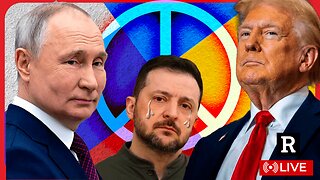 1:30:48
1:30:48
Redacted News
10 hours agoBREAKING! TRUMP AND PUTIN NEARING PEACE BUT EUROPEAN WARMONGERS TRYING TO STOP IT | REDACTED
178K249 -
 52:40
52:40
Candace Show Podcast
11 hours agoSaturday Night Lively: What Were They Thinking? | Candace Ep 148
151K152 -
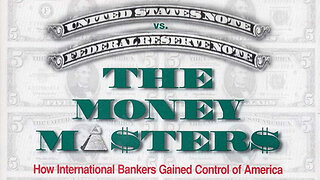 3:30:06
3:30:06
Man in America
6 hours agoDocumentary: The Money Masters 'How International Bankers Gained Control of America'
40.2K11 -
 1:10:40
1:10:40
PMG
1 day ago $1.91 earnedTom Hanks Plays a Racist MAGA Supporter On SNL!! UNBELIEVABLE
19.5K3 -
 2:11:29
2:11:29
Adam Does Movies
10 hours ago $1.64 earnedAsk Me Anything - Live!
27.5K1 -
 56:18
56:18
Flyover Conservatives
1 day agoFollow the Money: $4.7 Trillion in Government Fraud EXPOSED!; Flu Shots, Fear & Big Pharma Lies—What They DON’T Want You to Know - Dr. Stella Immanuel | FOC Show
32.5K1 -
 1:16:24
1:16:24
Anthony Rogers
1 day agoEpisode 354 - Current Events, Weather, and Other Clickbait
34.7K2 -
 25:10
25:10
Producer Michael
10 hours agoTHE HOTTEST FRAGRANCES FOR 2025!
34K2 -
 18:44
18:44
Clownfish TV
5 days agoHollywood Has a DEI Temper Tantrum!
21.3K7
